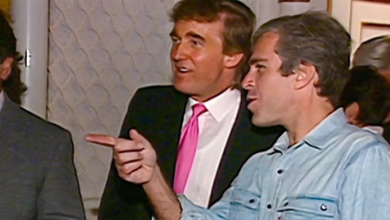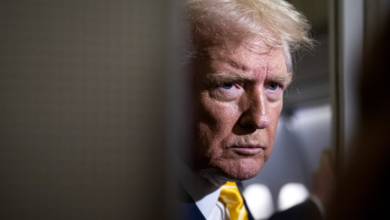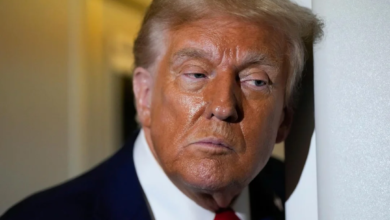Republicans Big Mad At Elon Musk For Telling The Truth About The Big Beautiful Bill
There's a big, obvious imbalance between taxes and spending cuts in the "One Big Beautiful Bill Act," and Republicans are pretending it doesn't exist.

Republicans are responding to criticism of their tax and Medicaid bill from an unlikely source: former White House adviser Elon Musk.
Rep. Darin LaHood (R-IL) said Monday that Musk, who complains the bill will worsen the budget deficit, doesn’t know what he’s talking about.
“I disagree with Elon because he doesn’t understand how the tax bill works,” LaHood told CNBC. “It’s going to propel the economy.”
In fact, Musk understands the legislation well. The “Big, Beautiful Bill” includes $4 trillion or more in tax cuts and spending increases, but spending cuts of less than $2 trillion.
“I was disappointed to see a massive spending bill that, frankly, increases the deficit, not just reduces it, and undermines the work of the DOGE team,” Musk said last week.
Musk’s statement was very moderate. He didn’t address how the legislation would reduce social benefits for the poorest in order to finance tax cuts for the richest. He simply made the telling observation that the numbers don’t add up.
Elon Musk’s anger is growing because he is the one President Donald Trump nominated to head the “Department of Government Efficiency,” a department whose goal is to reduce the federal budget deficit through spending cuts. Republicans have made Musk a symbol of fiscal responsibility, a cause they have championed for years, and now he is sharply criticizing them for abandoning their fundamental guiding principle.
This is why Republicans are constantly questioned about Musk and why they insist he’s wrong.
“I sent a long message to my good friend Elon Musk after his comments a few days ago to explain that this is not a spending bill,” House Speaker Mike Johnson (R-La.) said Sunday on “Meet the Press,” adding that he believed Musk and other critics were “missing” the budget cuts in the bill.
A Congressional Budget Office (CBO) analysis of the various components of an earlier version of the bill found about $1.6 trillion in spending cuts, about $3.8 trillion in tax cuts, and about $200 billion in spending increases for border security and the military. In total, the gap between tax cuts and spending cuts amounts to about $2.3 trillion. (The CBO analysis does not consider the financial effects of the interactions between the bill’s provisions and does not include last-minute changes; the CBO will release a new analysis this week.)
Republicans are advancing three main arguments to try to quell criticism of the bill’s apparent inadequacy. The first is that the spending cuts, while smaller than the tax cuts, are still too large.
“There’s no question that this bill reduces spending by more than $1.6 trillion. And that’s largely through the largest reform of the safety net in history,” White House adviser Stephen Miller said in a social media post Sunday, referring to cuts to federal health and food programs.
The most fundamental argument Republicans advance against fiscal calculus is that tax cuts and spending will significantly stimulate economic activity, which will simultaneously increase federal tax revenues.
“The reason we call it a ‘big, beautiful bill’ is because it’s a massive growth program, built into this legislation, that will raise incomes for everyone,” Johnson said. “There will be more jobs and more opportunities for economic advancement in the United States because job creators, entrepreneurs, and venture capitalists will be protected by the government, which will cut taxes and expand their businesses.”
Johnson and others have complained that the Congressional Budget Office’s (CBO) long-term economic growth forecasts are too low and that the bureau fails to account for the increased economic activity that would result from tax cuts. But budget forecasters who use what’s called dynamic assessment don’t share the Republicans’ optimism.
For example, the conservative-leaning Tax Foundation found that the bill would increase the deficit by $2.5 trillion on a conventional basis, and that increased economic growth would only partially reduce it. The group stated in its analysis: “On a dynamic basis, adjusting for economic growth, the deficit would increase by $1.7 trillion over 10 years, before interest.”
(The Penn Wharton budget model showed that the economic effects of the bill would actually increase its cost, in part because high-income households would work less as a result of the tax cuts.)
Another argument Republicans make against budget experts is that they shouldn’t even consider the cost of their tax cuts, because most of the cuts in their bill are simply extensions of the ones they enacted in 2017. Those cuts will expire at the end of the year, automatically returning higher marginal tax rates.
“On the deficit, maintaining current tax rates does not, by definition, increase the deficit by a single cent,” Miller said. “Maintaining current rates costs the government nothing.” In 2017, Republicans set the expiration of their tax cuts for December 2025 to make them appear less costly in Congressional Budget Office (CBO) projections. Now, Miller and some Republican senators are trying to disband them by arguing that the expiration of the cuts wasn’t real, even though they passed legislation to ensure it wouldn’t happen.
Musk, who lies like a liar on other issues, might have been more inclined to tell the truth about the bill last week, as he was leaving his post at the White House Treasury after failing to meet an overly ambitious $2 trillion spending target. Now, congressional Republicans are passing legislation that will reduce the deficit even more than Musk did.







